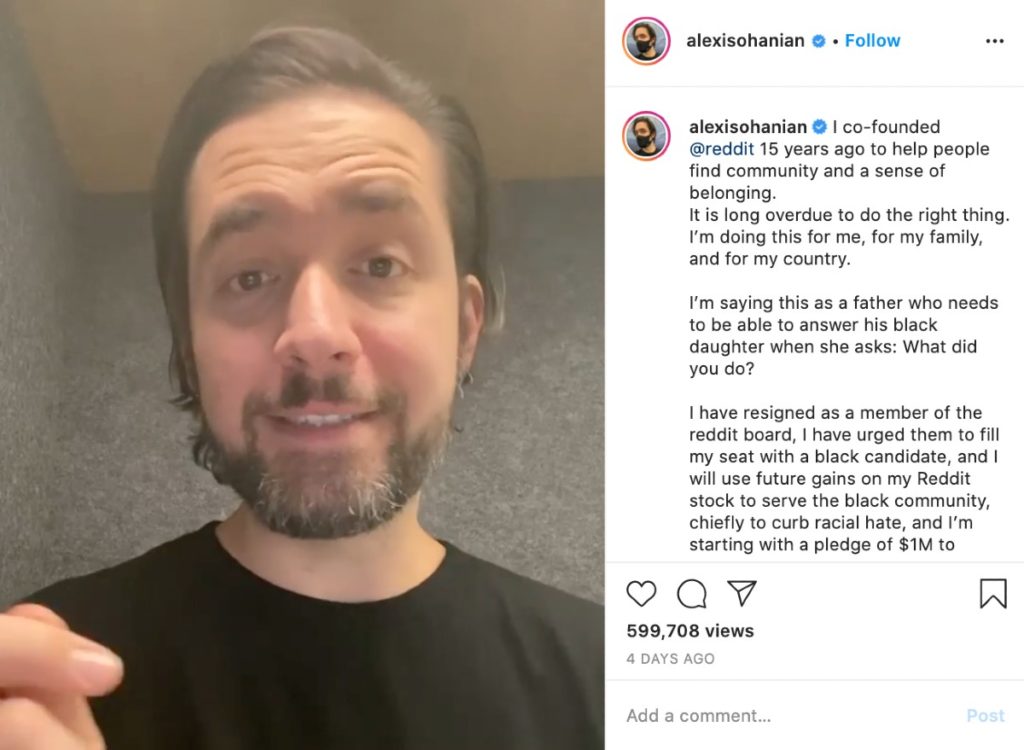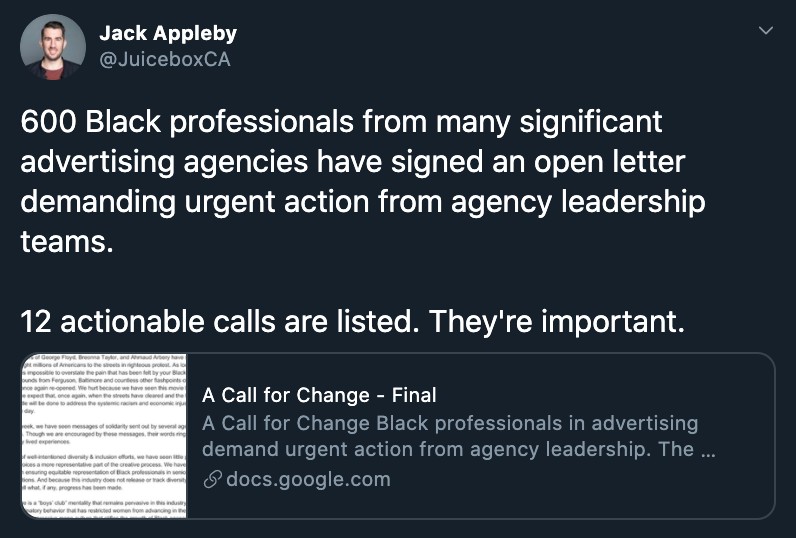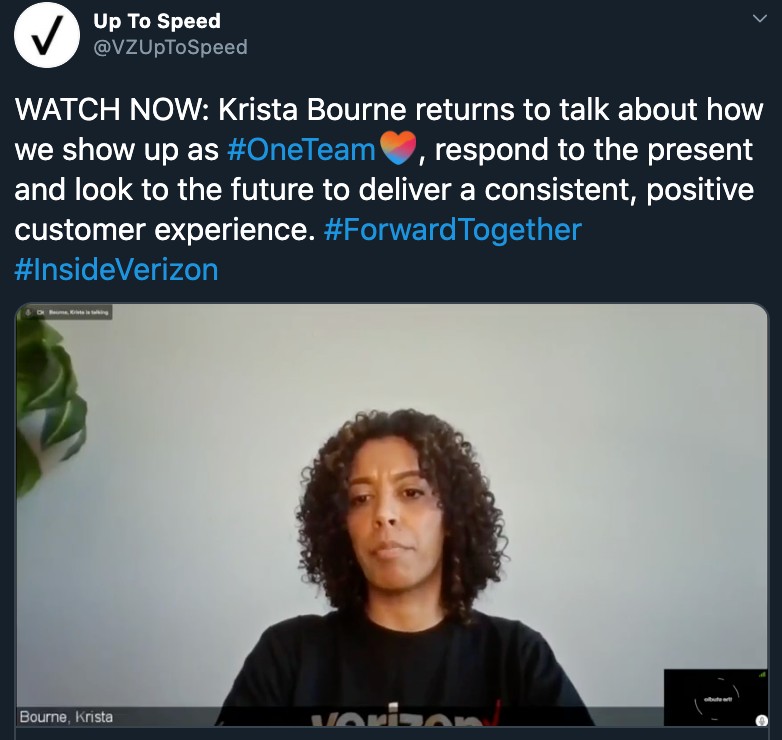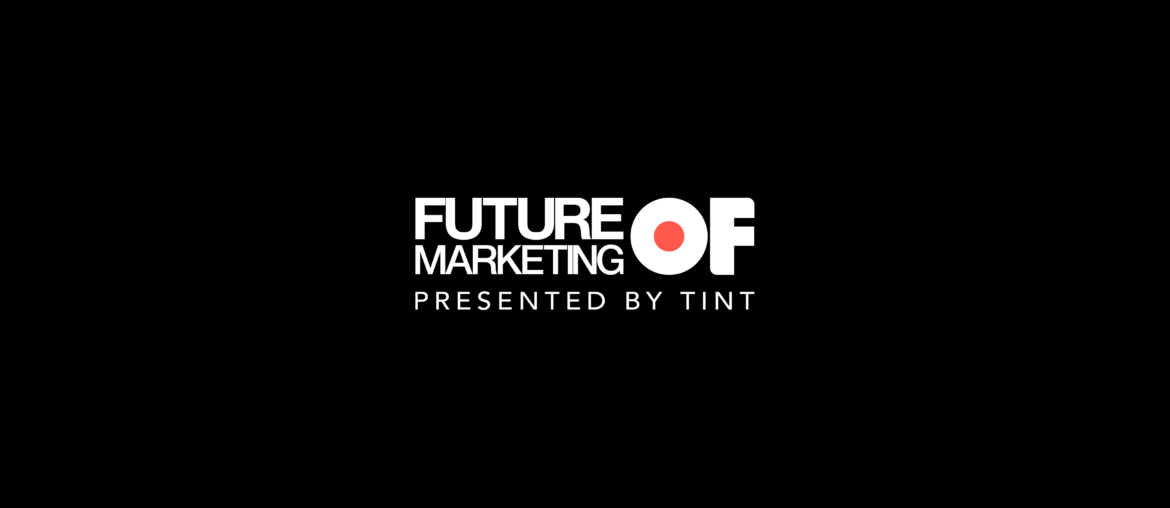This content originally appeared June 11, 2020 as part of the Future of Marketing weekly email series. Subscribe here.
User-generated content (UGC) has played an important role in the marketing strategy of many brands over the years – recently seeing an uptick due to 2020 events. UGC has become an increasingly effective form of communication, allowing people and brands to access the most authentic and relevant information online.
From inclusivity to mental health, organizations are increasingly relying on the voice of employees and consumers to ensure they are moving in the right direction. While leaders of these companies face social pressure to actively respond, their actions are also a smart long-term marketing strategy.
Acts not ads
The internal battles exploding within organizations over issues that have long been ignored are finally coming to light. Many businesses will adapt as a result, and others will forever change or be replaced with different leadership.
Alexis Ohanian, co-founder of Reddit and husband to pro tennis athlete Serena Williams, stepped down from Reddit’s board and asked to be replaced by a black leader – hoping to set an example for organizations around the world.

Reebok and Rogue Fitness were among several athletic brands that ended their sponsorships with CrossFit, a branded fitness regimen, for an insensitive remark about George Floyd by the company’s CEO, Greg Glassman. Meanwhile, Coca-Cola’s CEO, James Quincey, gave a speech stating the company has not done enough to put black people in leadership positions. With only 7 percent of high-ranking positions held by black people, he pledged to “use the voices of our brands to weigh in on important social conversations,” and announced $2.5 million in grants to fight for justice and human rights.
Leaders that fight for transparency, equality, and justice are no longer optional. They are required – by employees and consumers alike. As demand for inclusivity and diversity increases, brand leaders share a mutual responsibility to lead with humility, take action, and speak up on important issues.
Diversity in the workplace
Difficult conversations are taking place online and in the workplace – forcing people to reflect on topics that extend beyond work. Employees are standing up to the status quo, calling out employers to use their power for good, and make an effort to connect and be more inclusive.
Under Armour leaders listened to their teammates expressing “a variety of emotions from anger to frustration to exhaustion, not only about the recent incidents but the history of social injustice and systemic racism around the globe” – recognizing an immense responsibility to step up.
Jack Appleby, Strategy Director at ad agency RGA, recently tweeted an open letter signed by over 600 Black professionals from notable advertising agencies, ”demanding urgent action from agency leadership teams.” The open letter, led by Nathan Young and Bennett D. Bennett, includes 12 actionable steps organizations can take to be more inclusive – from expanding training programs to ensuring fair compensation.

As employees step down from roles for their employer’s insensitivity and lack of action, other brands are sharing their plans to improve to retain and attract strong, diverse talent. Leaders now face an opportunity to revisit hiring and internal practices to strengthen the recruitment experience – an opportunity to incorporate employee-generated content (EGC) to highlight your work culture.
Disrupting the workforce
Companies across various industries are restructuring operations to prepare for the future of business – from implementing hybrid business models to readapting the customer and employee experience. “Online spending on food, furniture, and home appliances has increased in tandem with remote-working software, such as Zoom and Skype,” writes Derek Thompson with The Atlantic.
Some companies are now scrambling to go digital while ad agencies have been hit particularly hard – reconfiguring management and furloughing staff to cut costs and make up for lost revenue. Meanwhile, Starbucks recently announced it will be closing over 400 stores to expand to curbside pick-up and offset its loss. The coffee chain already planned to increase convenience-led initiatives but is now accelerating that due to the shifting environment.

Retail stores will either close or limit access to dressing rooms; tech companies, like Google, are embracing a flexible workforce and giving employees stipends for WFH equipment; and airlines are requiring passengers and employees to wear masks.
Cleaning, safety, and compliance are now a priority for all companies – and as marketers, it is our responsibility to help properly communicate these changes with those interacting with our business (internally and externally).
#BrandCrush: Verizon
In 2017, Verizon launched Ad Fellows, a program many ad agencies have since implemented to help foster equality within the marketing industry – demonstrating the steps the company has taken to be more inclusive.
To celebrate this year’s graduating class – which resulted in 94% of graduates getting hired – Verizon also announced, “the biggest graduation virtually that the world has ever seen.” Diego Scotti, CMO of Verizon, adds “truth is the best marketing… you can’t just talk about things that should be done or values that should be upheld but then don’t act on them.”
To support small local businesses, Verizon launched #PayItForwardLIVE, a Livestream featuring some of the most notable names in entertainment – encouraging users to tag local businesses to unlock donations up to $7.5 million.
Verizon has also been quick to change internal operations. “Even before the pandemic impacted consumer shopping habits, we’ve been exploring ways to evolve the business to continue to be a leader… we feel strongly that now is the right time to move FORWARD TOGETHER as #OneTeam,” shared Krista Bourne, SVP of Consumer Sales and Operations.

Meanwhile, Verizon expanded 5G internet access to Detroit, the sixth city to offer the service – giving those working from home or homeschooling stronger internet access. Verizon is setting an example for brands and marketers around the world – showing us what it means to use your power and voice to lift others.
